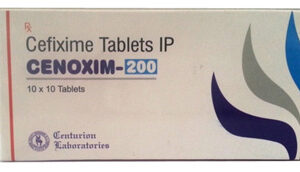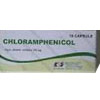Overview of Augmentin
Augmentin is a combination antibiotic consisting of amoxicillin, a penicillin-type antibiotic, and clavulanate potassium, a beta-lactamase inhibitor. This combination results in an extended spectrum of action against bacterial infections that are resistant to amoxicillin alone. Augmentin is indicated for the treatment of various infections caused by susceptible strains of bacteria.
Available Dosage Forms
Augmentin comes in several dosage forms, including immediate-release tablets, extended-release tablets known as Augmentin XR, chewable tablets, and an oral suspension. The appropriate form and dosage depend on the age, condition being treated, and renal function of the patient.
Indications for Use
Augmentin is used to treat a variety of bacterial infections. These include sinusitis, pneumonia, ear infections, bronchitis, urinary tract infections, and skin infections. Additionally, it may be used to treat more severe respiratory tract infections and some cases of Staphylococcus or Streptococcus infections.
Proper Administration
Augmentin should be taken at the start of a meal to enhance absorption and decrease gastrointestinal side effects. Immediate-release tablets should be swallowed whole, not crushed or chewed. The oral suspension should be shaken well before each use and measured carefully with a dosing spoon or oral syringe.
Dosing Information
The dosing of Augmentin is patient-specific. It is prescribed based on the patient’s age, weight, kidney function, and the severity of the infection. Physicians typically prescribe Augmentin every 8 or 12 hours, depending on the dosage form and strength.
Missed Dose Protocol
If a dose is missed, it should be taken as soon as possible. However, if it is nearly time for the next scheduled dose, the missed dose should be skipped to avoid taking two doses very close to each other. Subsequent doses should continue as normal.
Storage Instructions
Augmentin tablets should be stored at room temperature away from moisture and heat, while the oral suspension should be kept in the refrigerator and discarded after 10 days or as indicated by the expiration date. Do not freeze the suspension.
Drug Interactions
Augmentin may interact with other medications such as anticoagulants, allopurinol, probenecid, and oral contraceptives. It’s essential to discuss all current medications with a healthcare provider to avoid potential interactions.
Adverse Reactions
Common side effects of Augmentin include diarrhea, nausea, vomiting, and skin rash. Severe side effects may include allergic reactions, liver dysfunction, and Clostridium difficile-associated diarrhea. Immediate medical attention is required for severe side effects or allergic reactions.
Special Populations Consideration
Pregnant women, breastfeeding mothers, patients with renal impairment, or patients with a history of liver disease or jaundice associated with amoxicillin/clavulanate use should use Augmentin with caution, and only when prescribed by a healthcare provider who has considered the risks and benefits.
Monitoring Parameters
During treatment with Augmentin, kidney and liver function should be monitored, particularly in patients with pre-existing renal or hepatic impairment. The development of severe diarrhea should also be monitored as it may indicate a Clostridium difficile infection.
Dietary Considerations
While on Augmentin, patients should maintain adequate hydration to prevent the formation of highly concentrated urine. Unless directed by a healthcare provider, patients should not restrict intake of specific foods while taking Augmentin.
Resistance Risks
Improper use or overuse of antibiotics like Augmentin can lead to increased bacterial resistance. It is critical to take Augmentin as prescribed and to complete the entire course of therapy, even if symptoms improve, to minimize the risk of resistance.
Handling Overdose
In the event of an Augmentin overdose, immediate medical attention is required. Supportive measures and symptomatic treatment should be initiated as necessary. Amoxicillin and clavulanate potassium overdoses can result in renal dysfunction, and dialysis may be performed if needed.






Reviews
There are no reviews yet.